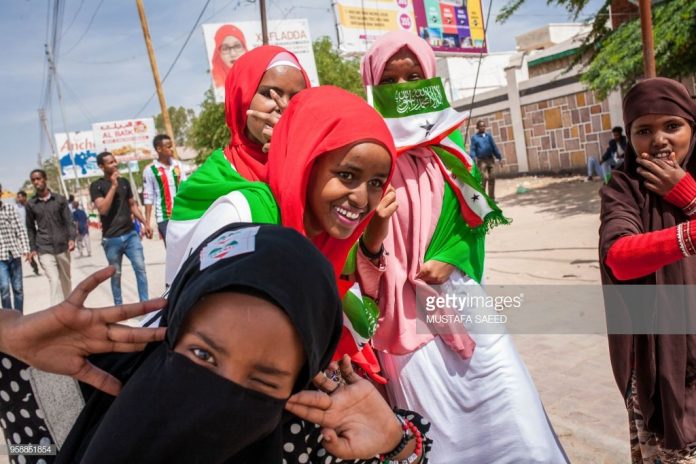
Look at a world map and you will not find Somaliland, Western Sahara or Abkhazia.
This is because they are not technically countries.
Somaliland is an autonomous region in Somalia; Western Sahara is a disputed territory in Northern Africa between Mauritania and Morocco, and Abkhazia is a region within Georgia that has its own government yet lacks international recognition.
But you can still visit these unrecognised nations on a trip with Young Pioneer Tours, which runs tours to countries so far off the beaten track, you will be forgiven for not having heard of them before.
These include Marshall Islands, Solomon Islands and Kiribati, which are all among the 15 least visited countries in the world.
Mr John McGovern, the company’s international tours manager, says: “The more we visited these places, the more we realised there is a lack of factual information as well as genuine person-toperson relationships with these countries, so even if they lack the tourist facilities of more developed countries, they give the traveller a more rewarding experience.”
Mr John McGovern, the company’s international tours manager, says: “The more we visited these places, the more we realised there is a lack of factual information as well as genuine person-toperson relationships with these countries, so even if they lack the tourist facilities of more developed countries, they give the traveller a more rewarding experience.”
Mr John McGovern, the company’s international tours manager, says: “The more we visited these places, the more we realised there is a lack of factual information as well as genuine person-toperson relationships with these countries, so even if they lack the tourist facilities of more developed countries, they give the traveller a more rewarding experience.”
In Somaliland, for instance, travellers can view 10,000-year-old cave paintings, swim in the Gulf of Aden and explore a mix of Ottoman, Persian and British architecture in the cities of Berbera and Hargeisa.
They will also visit a Syrian restaurant run by refugees from Damascus and have lunch at a SomaliYemeni restaurant with Somaliland intellectual icons, who can give a political, social, historical and cultural introduction of the region.
To Mr McGovern, these local interactions are the most memorable part of the tour.
He says: “Best of all for me is sitting down for chai (tea), or chew chat (plant containing a mild stimulant) with the locals, who are among the friendliest people I have met.”
He adds that while Somaliland is not recognised as a country, it has its own borders and a separate govern- ment from Somalia, making it safe from the threats of piracy and terrorism that the latter is known for.
Guests should dress conservatively, as Somaliland is an Islamic region. For instance, female guests must cover their bodies if they wish to swim in the Gulf of Aden, which is part of the tour itinerary.
Despite the “young” in their name, the company attracts guests from their 20s to 70s with one thing in common – they enjoy trips to farflung destinations.
One of them is Singaporean Siti Aigah Jemy, 34, who has travelled with the company to 15 countries, including North Korea, Turkmenistan and Haiti.
Most recently, the civil servant rang in the new year on a five-day trip to Nauru, the least visited country in the world and an island located about 2,900km off Australia.
It is also the world’s smallest republic, with a land area of just 21 sq km In comparison, Singapore measures 721.5 sq km.
There, she visited the parliament building, saw World War II remains and interacted with refugees hoping to seek asylum in Australia.
It was a fascinating glimpse into a forgotten corner of the world.
Ms Siti says: “It is satisfying to go to places that nobody else I know has gone. I like being able to enjoy unique experiences.”



























